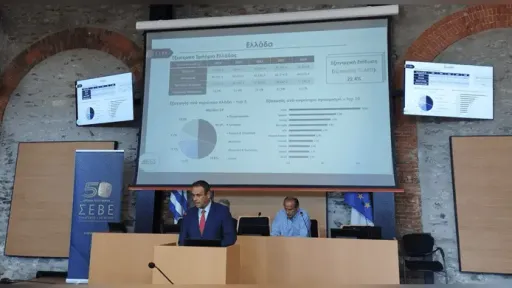13 innovation centers to be established across Greece’s Regional Education Directorates

The Greek Ministry of Education has announced the establishment of 13 Innovation Centers (ICs) — one in each Regional Directorate of Education across the country. For the Region of Eastern Macedonia and Thrace, the center will be based in İskeçe.
The centers are set to begin operations with the 2025–2026 school year, forming part of a strategic investment aimed at transitioning Greek education into the digital and innovation era.
According to the Ministry, these Innovation Centers will serve as modern hubs of education, innovation, and cutting-edge technology, targeting both primary and secondary education levels.
Mission and Objectives:
Technology Integration: The centers aim to connect the educational process with technology, science, and creativity.
Hands-On Learning: Students and teachers will have access to experiential workshops and educational programs utilizing advanced technologies.
Skill Development: Focus areas include 21st-century skills, STEM education, digital literacy, green development, and interdisciplinary learning.
Use of Emerging Technologies: Centers will incorporate tools such as robotics, extended reality (XR), artificial intelligence (AI), and advanced fabrication technologies.
The goal is to create a comprehensive ecosystem of knowledge, linking schools with research institutions, universities, local communities, and European networks of education and innovation.
Infrastructure and Oversight:
The centers will operate in modern, fully equipped facilities, provided by local authorities, municipalities, or universities. Staff will be composed of highly qualified educators, responsible for implementing the training programs.
Pedagogical planning and scientific supervision will be overseen by the Computer Technology Institute and Press “Diophantus”, with the approval of the Institute of Educational Policy.
This initiative represents a strategic investment in the future of Greek education, aiming to promote educational equity, digital transformation, and equal access to technological education. It also supports a new model of participatory learning, connecting the school community with research, technology, and the broader knowledge society.
The project is part of the National Recovery and Resilience Plan "Greece 2.0", co-funded by the European Union – NextGenerationEU.
Source: Paratiritis News







